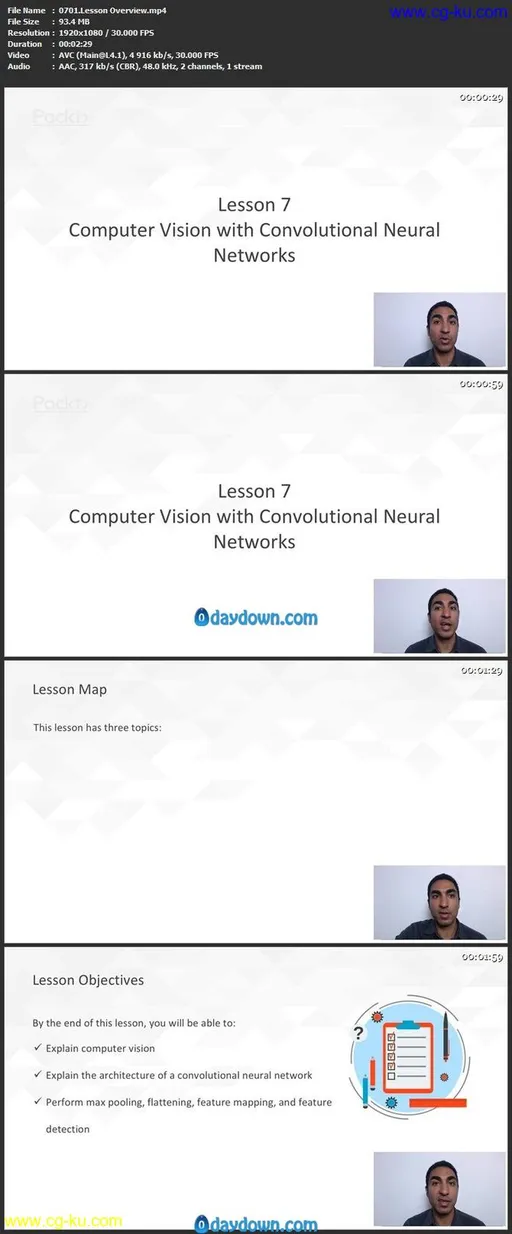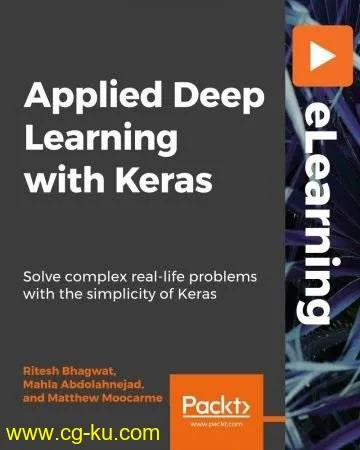MP4 | Video: AVC 1920x1080 30fps | Audio: AAC 48KHz 2ch | Duration: 4h 49m
Genre: eLearning | Language: English | Size: 13 GB
Take your neural networks to a whole new level with the simplicity and modularity of Keras, the most commonly used high-level neural networks API
Learn
Understand the difference between single-layer and multi-layer neural network models
Use Keras to build simple logistic regression models, deep neural networks, recurrent neural networks, and convolutional neural networks
Apply L1, L2, and dropout regularization to improve the accuracy of your model
Implement cross-validate using Keras wrappers with scikit-learn
Understand the limitations of model accuracy
About
Though designing neural networks is a sought-after skill, it is not easy to master. With Keras, you can apply complex machine learning algorithms with minimum code.
Applied Deep Learning with Keras starts by taking you through the basics of machine learning and Python all the way to gaining an in-depth understanding of applying Keras to develop efficient deep learning solutions. To help you grasp the difference between machine and deep learning, the course guides you on how to build a logistic regression model, first with scikit-learn and then with Keras. You will delve into Keras and its many models by creating prediction models for various real-world scenarios, such as disease prediction and customer churning. You’ll gain knowledge on how to evaluate, optimize, and improve your models to achieve maximum information. Next, you’ll learn to evaluate your model by cross-validating it using Keras Wrapper and scikit-learn. Following this, you’ll proceed to understand how to apply L1, L2, and dropout regularization techniques to improve the accuracy of your model. To help maintain accuracy, you’ll get to grips with applying techniques including null accuracy, precision, and AUC-ROC score techniques for fine tuning your model.
By the end of this course, you will have the skills you need to use Keras when building high-level deep neural networks.
You can access the code files here
Features
Solve complex machine learning problems with precision
Evaluate, tweak, and improve your deep learning models and solutions
Use different types of neural networks to solve real-world problems


发布日期: 2019-08-30